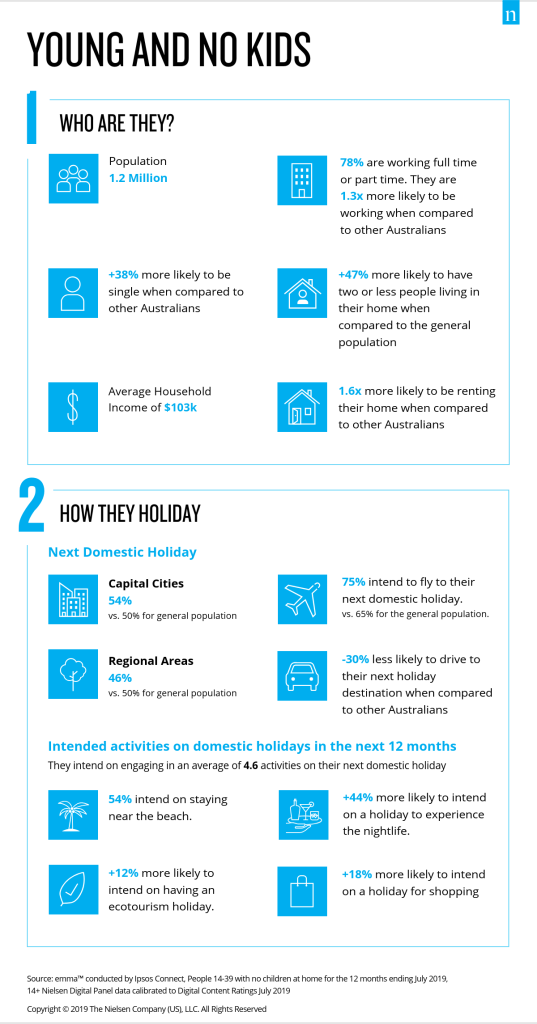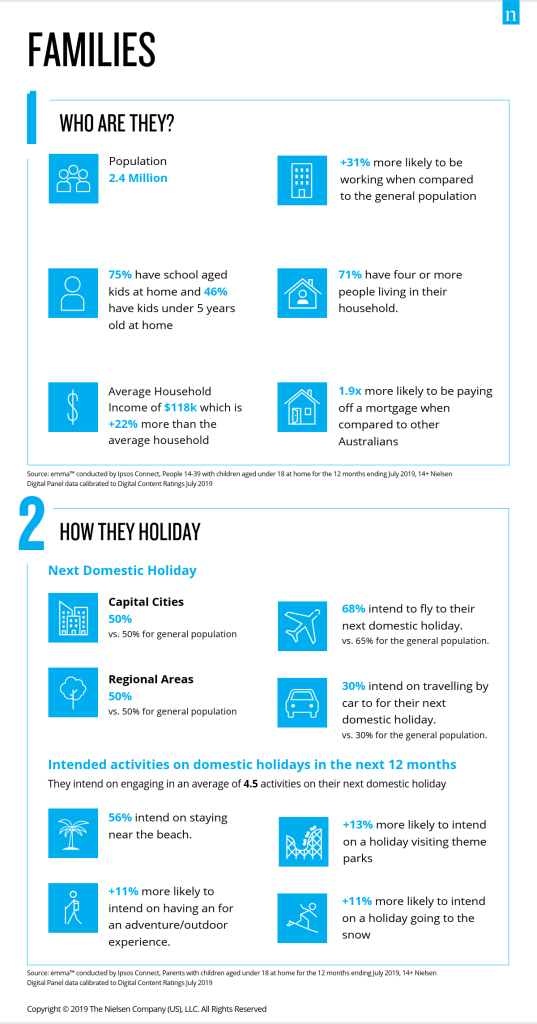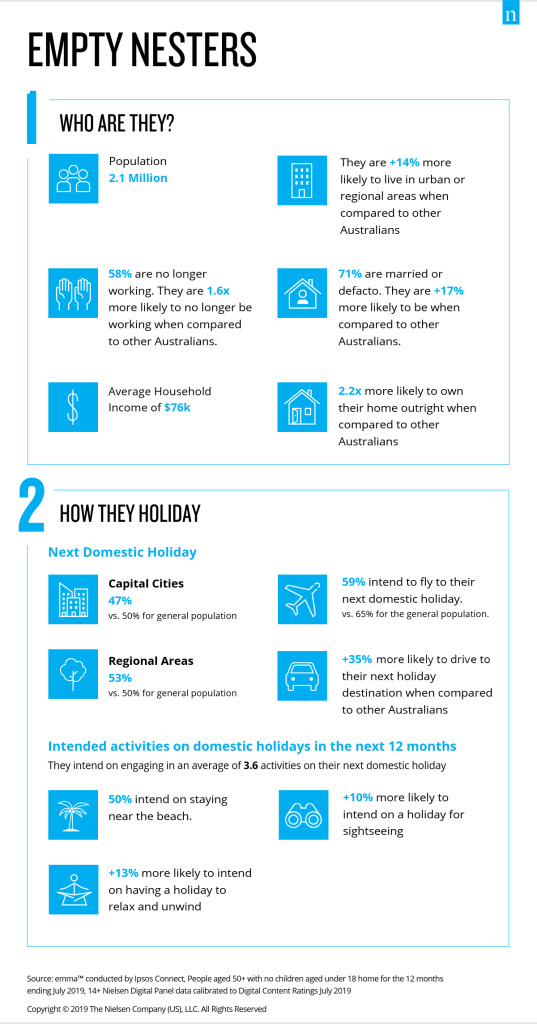While advertisers in the travel market tend to focus their marketing efforts on big-ticket items such as international flights, hotels, meals and activities they should not overlook the opportunity to reach Australians who enjoy short breaks and weekends away. These types of getaways are taken with greater frequency as they are cheaper than long holidays and Australians are more likely to travel domestically with greater frequency than internationally.
With restrictions on how much Australians are willing to spend and time available, it’s no wonder 7.8 million Australians feel that short breaks and weekends away are important.
For many Australians, holidays can be a spontaneous decision. Nearly a third of Australians (30%) plan their holiday less than a month before their departure. While short stays suit this type of holiday planning, all life stages have different preferences. Let’s take a look at young and no kids, families and empty nesters.
Young and No Kids
1.2 million Australians under 40 years of age with no kids at home are short stayers. When compared with the general population, young and kid-free Australians are 17% more likely to feel that getting away on the weekend is important to them or prefer short breaks over longer holidays.
While their personal income is 13% greater than the average Australian, they are time-poor. They are 19% more likely to feel that they never seem to have enough time to do what needs to be done when compared with the general population.
Time poor and choice rich this group enjoy the hustle and bustle when they travel but don’t have the luxury of time to plan their trips away. Advertisers should cater to this by offering packaged trips where everything is planned and included.

Families
For families taking an extended holiday with the kids depends heavily on seasonality. For long holidays families are limited to travelling during the school holidays. This means that they have to accept peak season airfares and hotel rates as well as the crowds associated with school holidays. This makes a short getaway or weekend away a great alternative option. Their idea of a domestic holiday involves plenty of family activities such as skiing, outdoor adventures and visiting theme parks.
There are 2.4 million parents with kids under 18 at home who are short-stayers. With an average of 4.2 people in an Australian family household, long holidays can be quite expensive. Time is also a challenge for them and when compared to the general population as 56% say that they feel that they never have time to do what needs to be done.
Marketing to this group should promote weekends and short trips that are affordable and family-friendly. Weekends and short trips away that promote outdoor activities and excursions appeal to this group and doing so in a packaged, discounted way specifically appeals to them.

Empty Nesters
There are 2.1 million empty nesters who enjoy short stays. They are presented with a different challenge when it comes to having a long holiday. While they are more likely to be retired and so have the time, their household income is 22% less than the average Australian household.
When compared to other Australians empty nesters are less likely to travel to capital cities and more likely to travel to regional areas. They are substantially more likely to travel to their next domestic holiday destination by car. Their idea of a domestic holiday involves some much needed rest and relaxation, with 62% saying that they like quite out of the way places.
The lesson that advertisers can learn from this group is that you are never too old for a road trip. Enjoying the peace and quiet from the countryside, more rural breaks or farm stays would appeal to this group. As this group can travel longer and enjoy exploring by car they offer potential tourism dollars for small coastal and rural communities along the way.

Methodology
ABOUT NIELSEN EMMACMV
Nielsen and The Readership Works (TRW) have a relationship that sees Nielsen’s national Consumer & Media View (CMV) incorporated into emma Cross Platform readership data. This is known as emmaCMV. For over 20 years, Nielsen’s CMV has surveyed consumers across Australia capturing an array of insights that help clients tackle marketing and media challenges. Whether they are involved in the planning, buying or selling of advertising, or responsible for brand strategy, Nielsen CMV insights provide the power to create effective marketing strategies and, ultimately, achieve business and marketing goals. emmaCMV is an enhanced and convenient solution that integrates Nielsen’s CMV into emma to provide readership, attitudinal, lifestyle and product data in one place. This information provides a comprehensive profile of the print consumer and their purchase intentions which supports more actionable analysis and insights.



